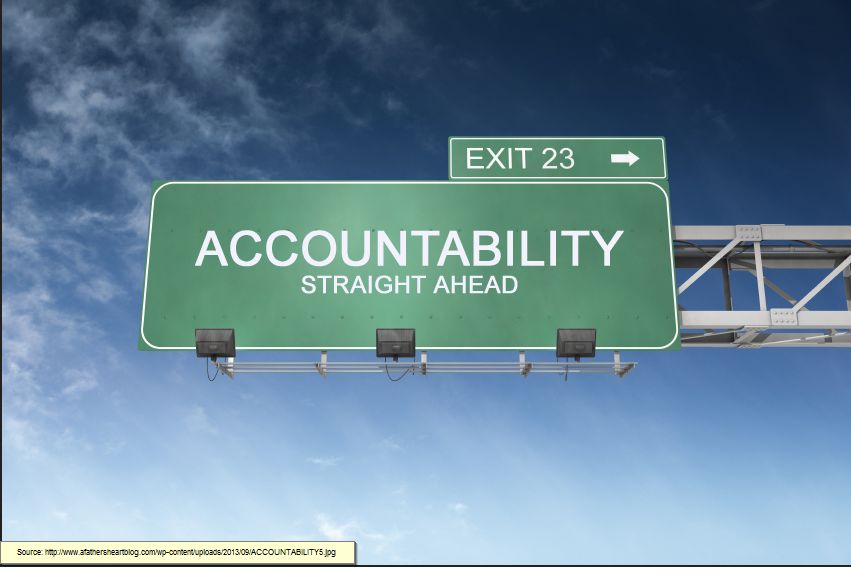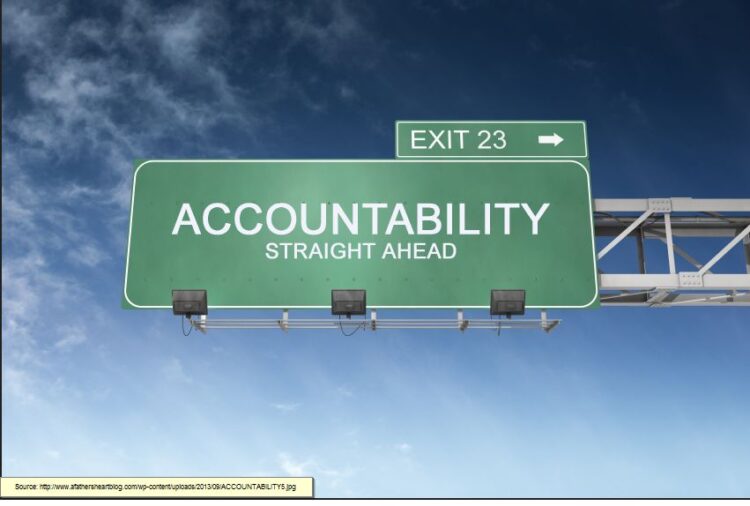
Nothing can put the kibosh on your enterprise’s growth with long-lasting negative consequences than the lack of accountability. And it’s not just newbies to the business culture who have to watch their steps—just ask former giants Arthur Andersen and Enron. Once trust in an organization’s leadership has been damaged, a snowball of cynicism, attrition, and failure can push any business to an untimely demise.
Believe me, accountability is one virtue you’ll want to plant deep into your corporate DNA. This is a principle I learned as a POW in North Vietnam for more than five years. In the harshest conditions imaginable, I witnessed how honor and accountability on the part of our leaders led the way for us who followed them to survive that ordeal with dignity and go on to lead successful, productive lives.
Somehow, though, accountability has gotten a bad name in today’s business environment—it has a “negative vibe.” So I’m here to make the case that it’s not only essential, but it can be a very positive leadership tool for getting great results. In fact, it’s the single most effective way to lead and develop next-generation leaders.
Putting It into Practice
The Courageous Accountability Model™ is a four-step plan to implement accountability in your organization:
- Make sure that you have clarity about expectations, starting at the highest level of mission, vision, and values. Then ensure that everyone is on the same page about standards, policies, and the work itself. Your people should have a very clear picture of what you want to happen.
- A team or business is more productive when their leaders are connected with them in positive ways. The truth is that every person wants to feel appreciated, to know that their work is making a difference. Employee engagement—connecting with people at a heart level so they feel valued—is one of the key roles of leaders.
- On the surface this step seems easy. “Sure, I like to collaborate,” we say. But when faced with challenges, ambiguity, and hard choices, the negative emotions can come quickly. Fear, anger, pride, distrust, shame, and guilt are natural first responses that drive us toward the impulse to dominate or withdraw. Neither response works in the long run. The goal is to learn to collaborate by engaging with others to work through issues with courage, confidence, humility, and respect.
And it especially requires you to manage yourself and manage differences uniquely. We use behavioral assessments like Leadership Behavior DNA™. This online assessment tool has been used by thousands of leaders to gain an objective view of their specific talents—their natural strengths and struggles. The goal is to maximize strengths while acknowledging their struggles and working on a few of them in order to grow as leaders.
- If you have diligently followed the steps above, the critical parameters are in place for you to celebrate success! Don’t be afraid or reluctant to celebrate. It’s the best way to bring closure to achieving a goal—it meets our natural desire to feel good about our work and our achievements.
For those times when you’ve applied and managed the steps above and it did not turn out well, you have to courageously confront the situation and the person with well thought-out consequences. It’s the only fair thing to do, and it benefits everyone: the person, the team, the organization, and you the leader.
Soft Skills Get Results
Leadership lessons came fast in the infamous “Hanoi Hilton” POW camp—it was literally a school of hard knocks. I personally experienced the sacrifice that it takes to live and lead with honor and accountability.
This direct relationship between these two virtues is undeniable, but it’s most powerful when we personally apply these soft skills as leaders. It requires clarity about what honorable behaviors look like. My team developed this Honor Code that identifies seven core principles:
- Tell the truth, even when it’s difficult.
- Treat others with dignity and respect.
- Keep your word and commitments.
- Be ethical.
- Act responsibly; do your duty and be accountable.
- Be courageous.
- Live your values.
They may sound simple, but when you begin applying them in everyday life and work, you’ll quickly realize how difficult they can be. No one is immune when human nature’s dark side emerges with self-serving, rationalizing thoughts and actions like fear, pride, or laziness that look for loopholes and shortcuts. That’s where accountability comes to the rescue, providing “guardrails” that keep us from veering off course and stumbling. Accountability helps us keep our commitments and be the kind of person and leader we want to be.
Don’t get tripped up by overlooking the principle of accountability. Make it a priority right from the start. Your investors, your employees, your family, and your future are all counting on you!
Image Credit: CC by whil whil



